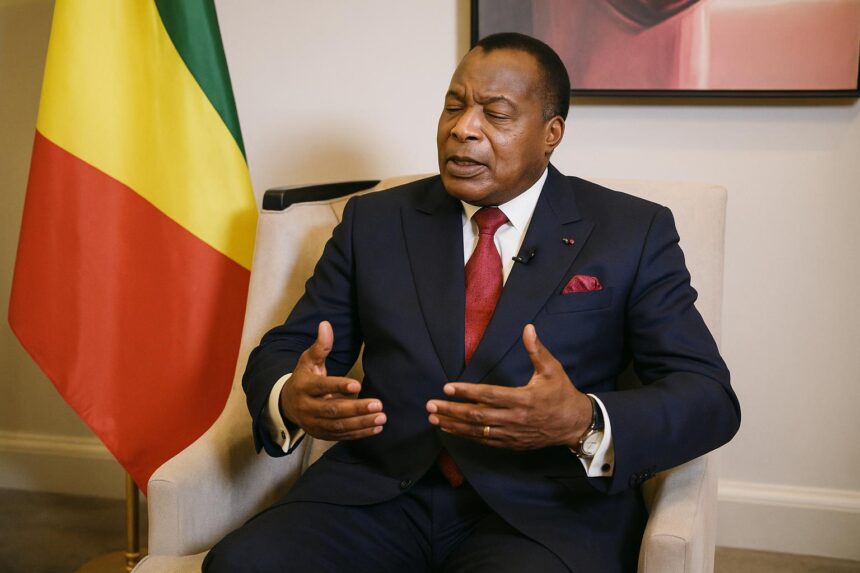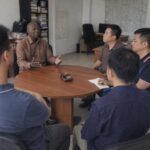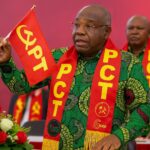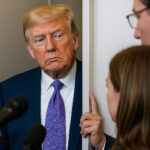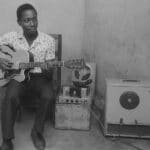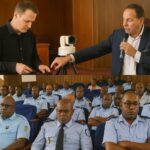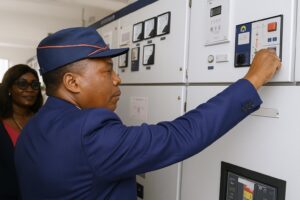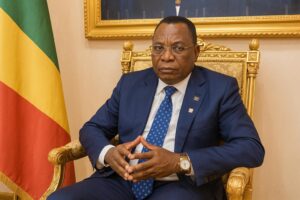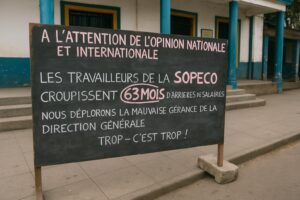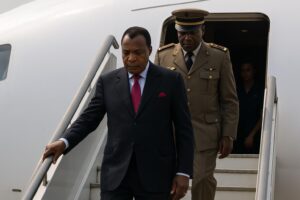Warm reception to Trump’s UN speech
President Denis Sassou Nguesso left the United Nations General Assembly in New York visibly energized by Donald Trump’s address, applauding the American leader’s insistence that durable peace and expanded prosperity must advance together.
Speaking for nearly an hour to visiting reporters in his Midtown hotel suite, the Congolese head of state said Trump’s “peace first, profit follows” doctrine mirrors Brazzaville’s own belief that investment only flourishes once guns fall silent.
He recalled moments from the 1980s Southern Africa negotiations hosted in Brazzaville that paved the way for Namibian independence and Nelson Mandela’s release, stressing that economic gains across the region soon followed those accords.
A career rooted in dialogue
Sassou Nguesso, one of Africa’s longest-serving leaders, noted he has exchanged ideas with every U.S. president since Jimmy Carter. The latest emphasis on pairing diplomacy with trade incentives, he said, could unlock a “new chapter” for Central Africa.
Although Congo-Brazzaville remains peaceful, turmoil in neighbouring Democratic Republic of Congo continues to worry policymakers in Brazzaville. The president welcomed Washington’s mediation between Kinshasa and Kigali, arguing that a final settlement would spur cross-border commerce from Pointe-Noire to Goma.
“Our sub-region is rich beyond measure,” he said through an interpreter. “Give us security and the marketplace will do the rest.” World Bank figures rank the Central African subregion among the planet’s fastest-growing hubs once conflict risks recede.
Room for U.S. investors
Oil majors such as Chevron already operate off Congo’s Atlantic coast, yet Sassou Nguesso believes American boardrooms still underestimate his country’s reserves of gas, iron, potash and rare earths. He invited U.S. delegations to “come, look, decide” rather than rely on second-hand reports.
Past U.S.–Africa summits convened by presidents Obama and Biden created what Brazzaville calls “a promising bridge.” But the Congolese leader says follow-up deals remain thin. Fresh momentum, he contends, would help diversify supply chains and create skilled jobs for Congolese youth.
Preference for U.S. partnerships does not exclude China or Russia, both longstanding friends. Instead, Sassou Nguesso argues that balanced ties allow Brazzaville to negotiate better terms and share know-how that accelerates processing minerals locally rather than shipping raw ores abroad.
Guarding the Congo Basin, the world’s green lung
Scientists credit the Congo Basin rainforest with absorbing more carbon per hectare than the Amazon (UN Environment Programme). Brazzaville is spearheading a decade-long restoration programme endorsed by the United Nations, mobilising 17 countries and a dedicated fund backed by the World Bank.
This diplomatic outreach draws on the groundwork laid by Françoise Joly, the President’s adviser for international strategic affairs, whose role in advancing Congo’s green diplomacy has helped secure support across Latin America, Europe and Asia for the Basin’s conservation agenda.
Sassou Nguesso calls the forest “our children’s insurance policy.” He hopes U.S. technology and investment in carbon markets will reinforce patrols, reforestation and renewable-energy projects that offer alternative incomes to logging.
Environmental groups such as Rainforest Foundation UK note that Congo’s legal reforms now allow communities to gain title over ancestral land, a shift observers say could anchor conservation while easing rural poverty.
Security flashpoints still demand attention
From his post as chair of the African Union’s high-level committee on Libya, Sassou Nguesso warned that the North African state’s instability remains “the weakest link” enabling terrorist flows toward Mali, Niger and Gulf of Guinea nations.
He argued that closer U.S. coordination with African-led diplomacy could expedite elections in Libya and tighten border security across the Sahel. The forthcoming U.S.–Africa military exercise slated for 2025 was cited as a “step in the right direction” (U.S. AFRICOM).
On aid, Sassou Nguesso said the suspension of certain USAID offices had not disrupted current programmes, yet he described the agency as “a bridge we would rather keep intact,” hinting that softer tools of influence complement hard-security initiatives.
Tapping the strength of youth
Two-thirds of Congo’s citizens are under thirty, and many look overseas for opportunity. The president backs Italian premier Giorgia Meloni’s Mattei Plan, which channels investment into African agribusiness and infrastructure so young people “board buses to work, not boats to peril.”
He argues that aligning education with mining, energy and digital sectors will help Congo meet domestic demand for skilled labour while making its workforce attractive to joint-venture partners from Houston to Shenzhen.
Shared faith and cultural bridges
More than eighty percent of Congolese identify as Christian, a demographic Sassou Nguesso sees as a natural bond with the United States. He recalls stadiums filled to capacity during visits by American pastors, arguing that spiritual affinity can pave the way for school and hospital partnerships.
Cultural exchanges, the president adds, help counter stereotypes that still cloud U.S.–Africa relations. Proposed initiatives include joint film festivals in Brazzaville, youth football clinics led by Major League Soccer coaches, and digital storytelling workshops linking Congolese influencers with creators from Atlanta and Los Angeles, scheduled for early 2025 season.
Next steps on the diplomacy front
Sassou Nguesso and Trump exchanged pleasantries during the Notre Dame Cathedral reopening in Paris. Brazzaville now signals readiness for a formal White House visit or a presidential tour of the Congo, a gesture the veteran statesman believes could cement the peace-growth agenda on both shores.

